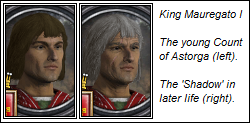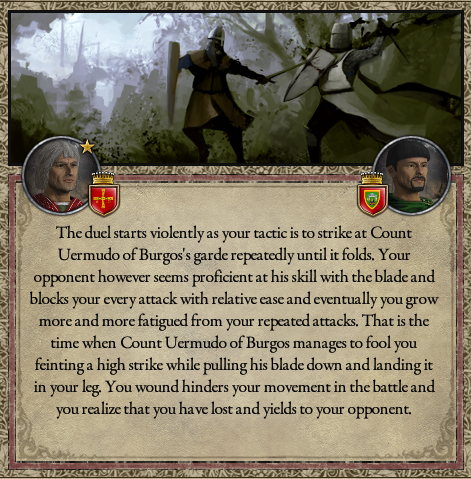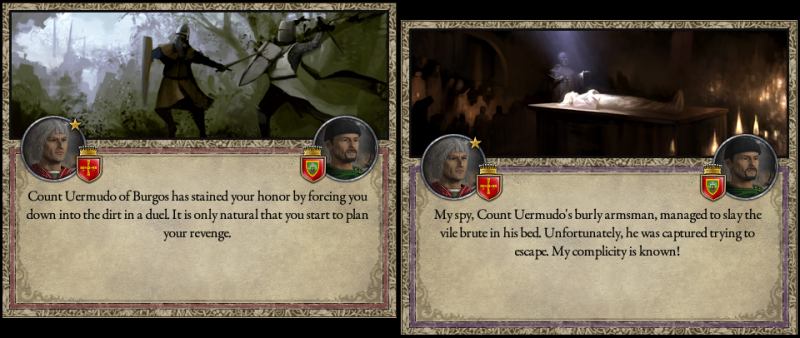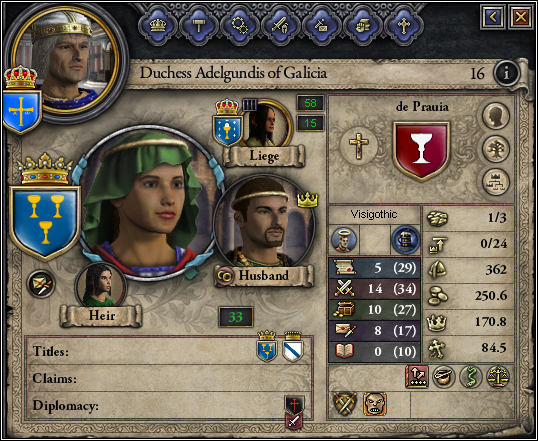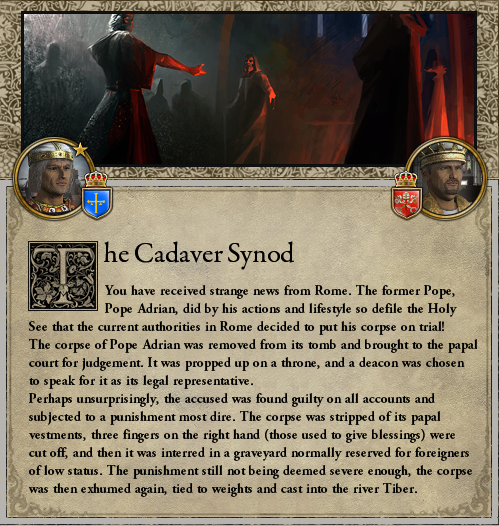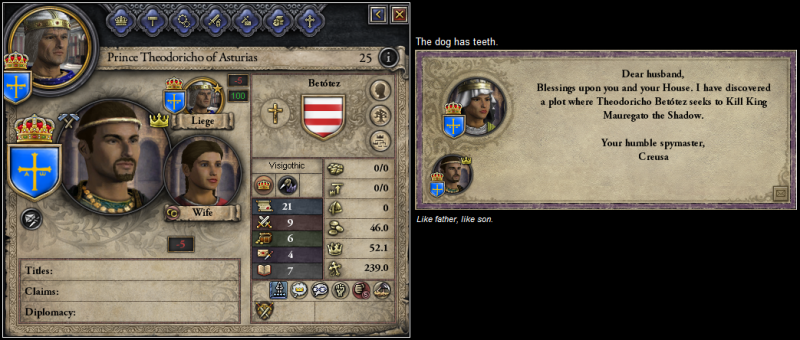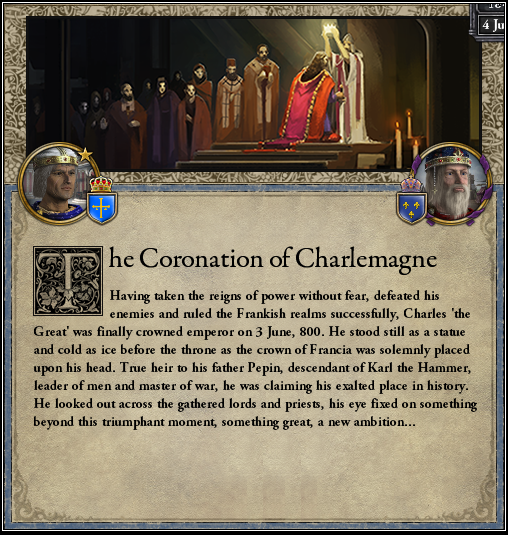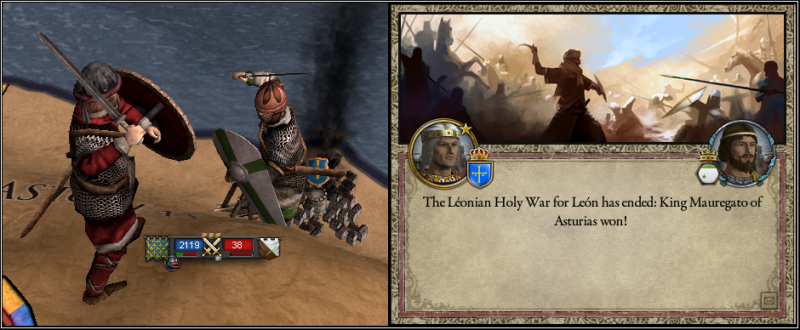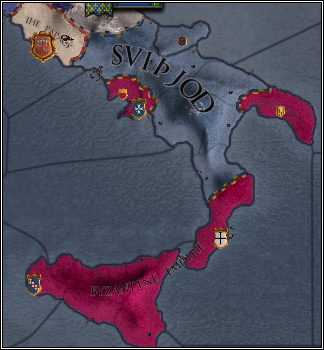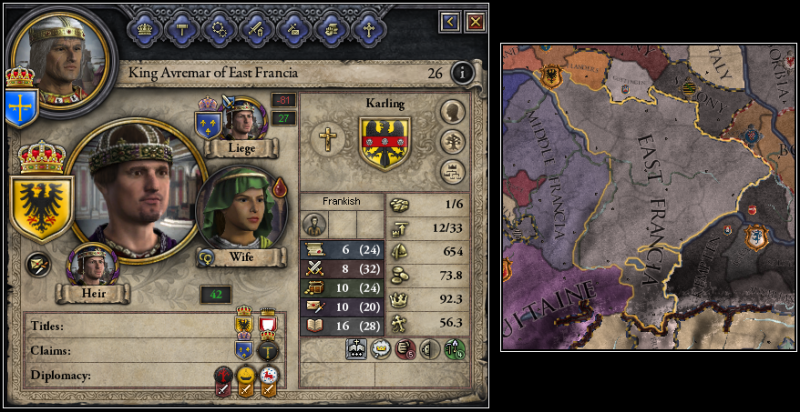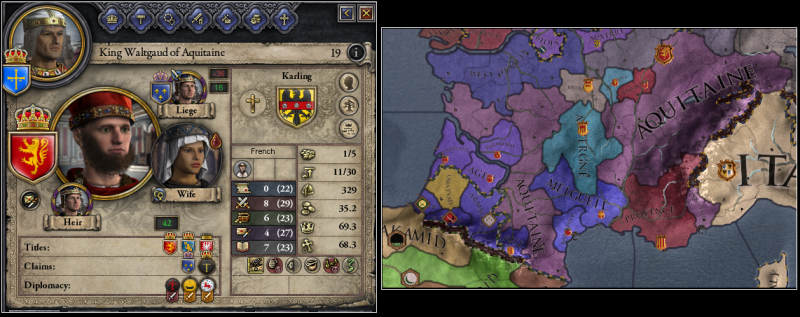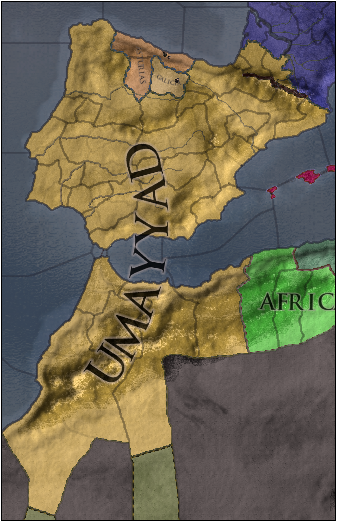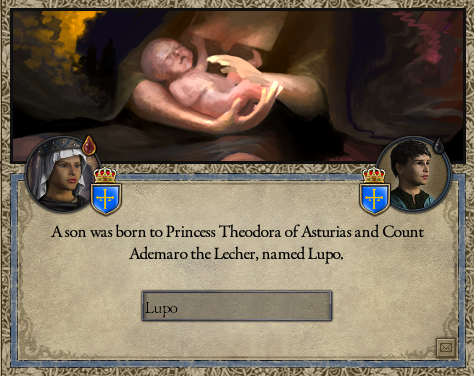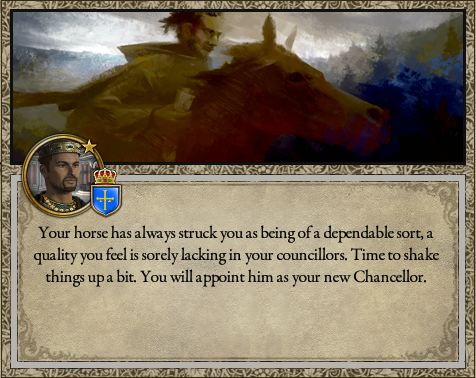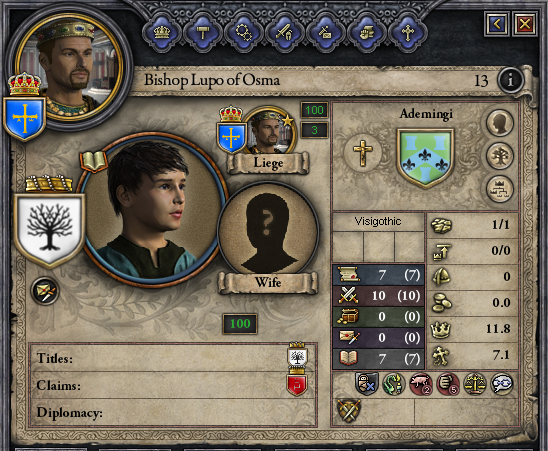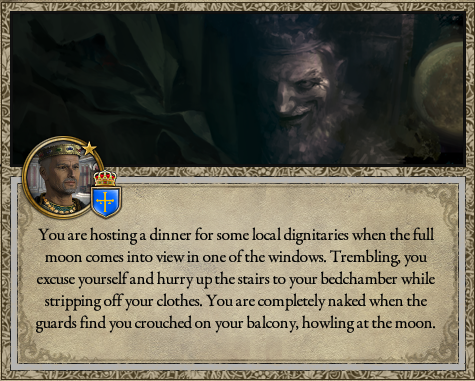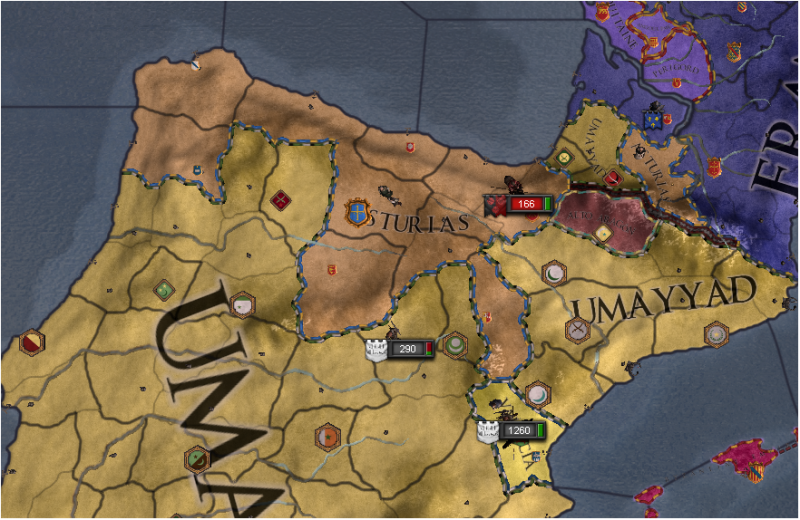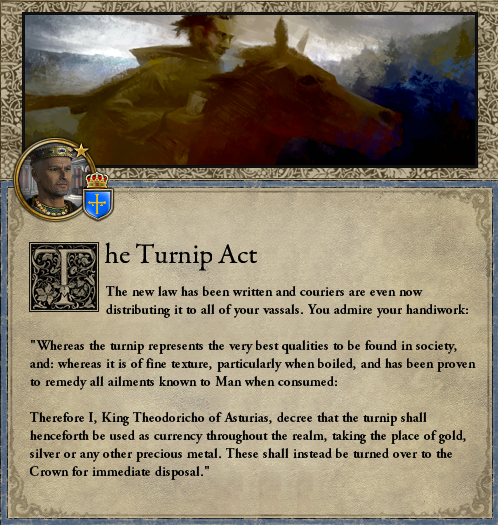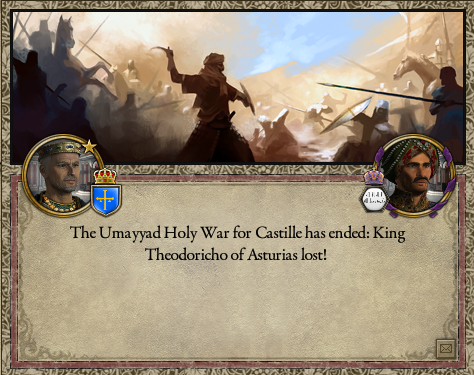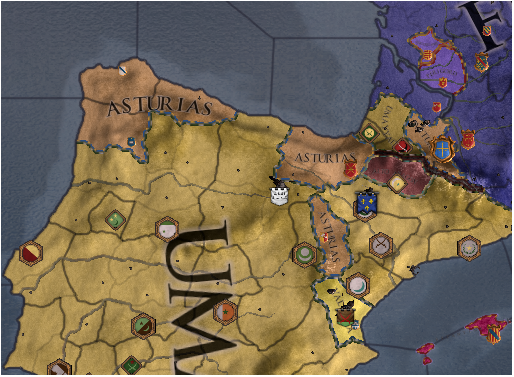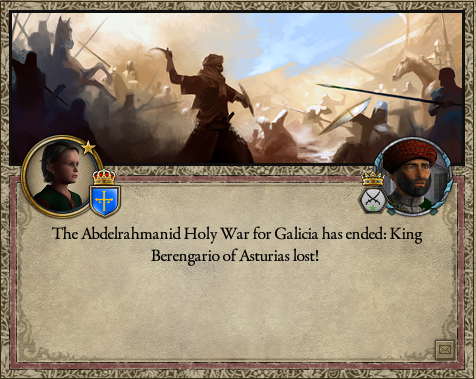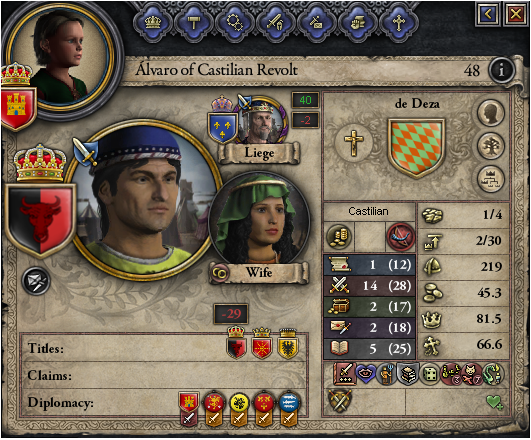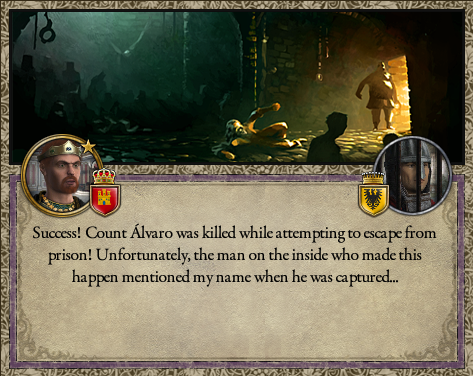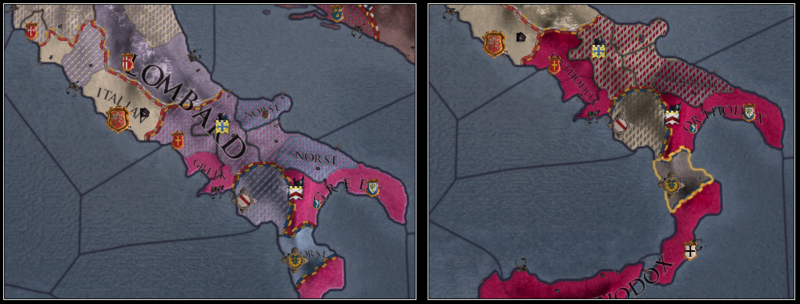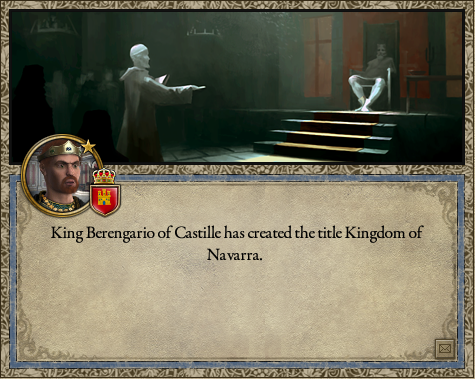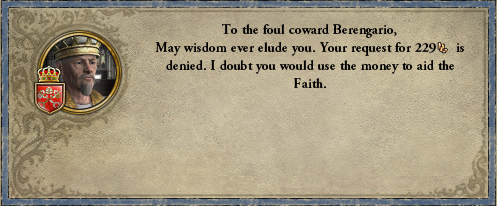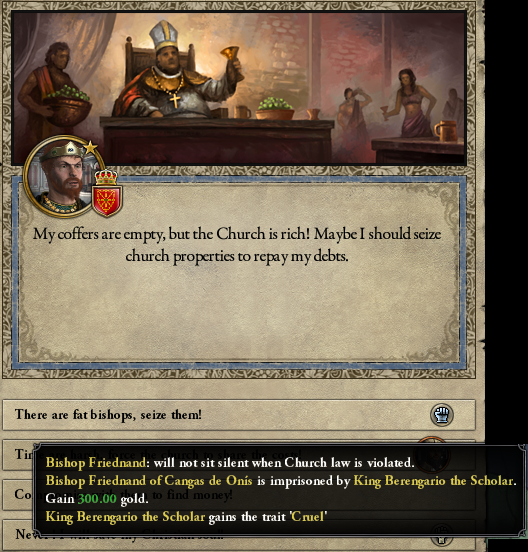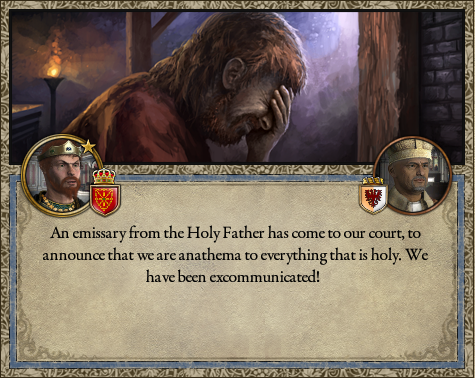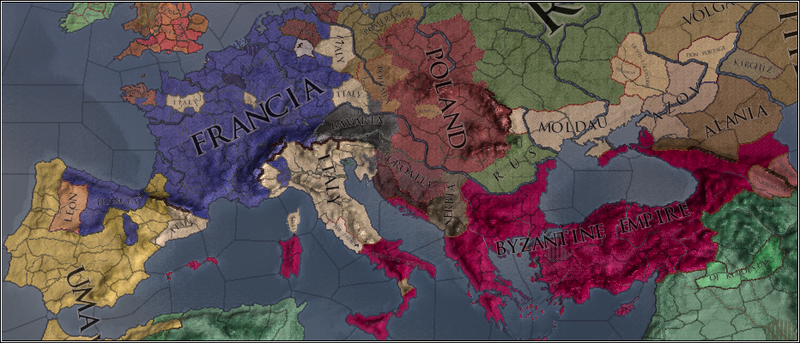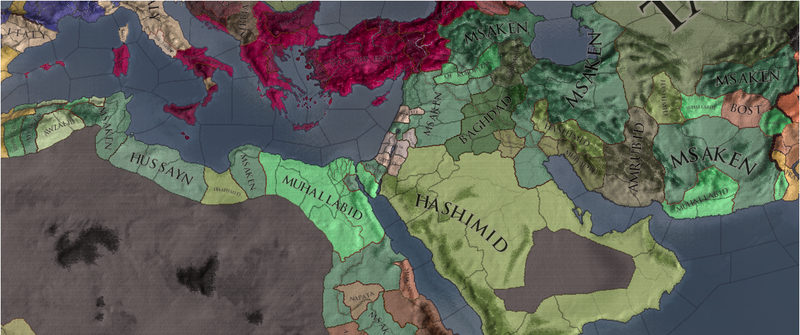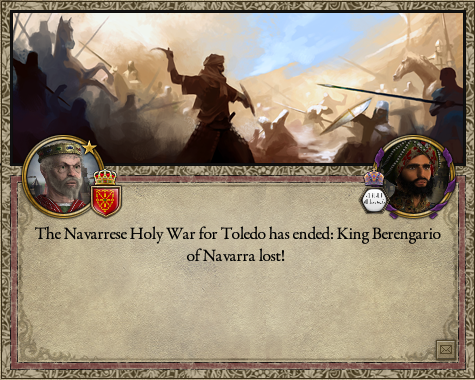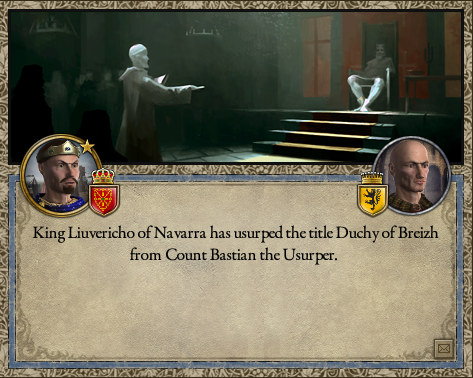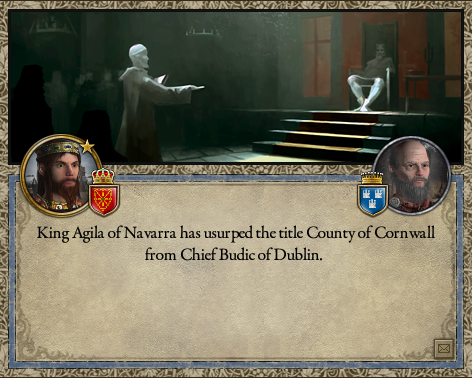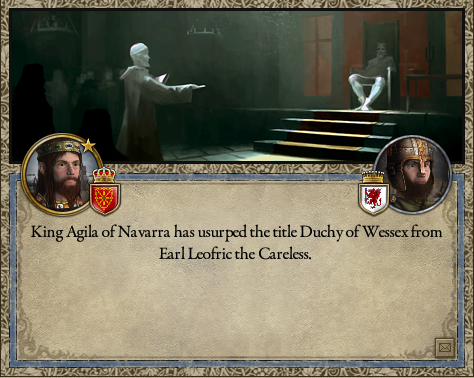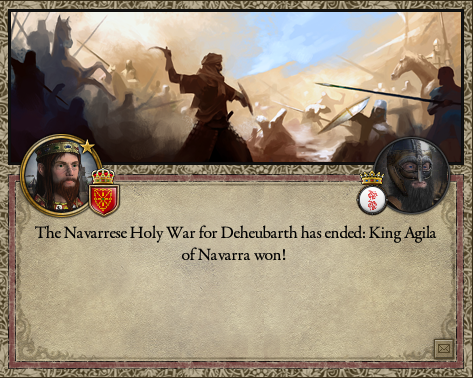Chapter VI
Chapter VI: Kingdom of the Sea (872-914)
'The Navarrese Kingdom of the Sea' by Robert Sanchez-Hughes, chapter taken from 'Studies in the Early Medieval West'.
Three kings pass in this period. Berengario dies having once again bankrupted the state on a failed dream, to be followed by Liuvericho, who is sometimes called unremarkable but begins the process by which the Visigoths take to the sea - which they do with great success which continues into the reign of Agila (who tends to get most of the credit for the seizure of Atlantic coastlands). The world in which these developments take place is, of course, chaotic. Berengario dies during the Frankish civil war, and 872 sees the collapse of the Abbasid Caliphate and the fracturing of the Islamic world.
The Passing of Berengario:
As soon as Berengario had the power, he indulged once again in ambitions of Spanish reconquest, failed miserably and saw his armies and mercenaries routed entirely.
The only benefit of Berengario's ambitions was the continued development of a highly militarised elite and a large class of adventurer-soldiers. The continued military competition provided ample opportunity for mercenaries and nobles to make their fortune and forge a reputation, despite the high risk to their lives. State funds going almost entirely into an aggressive funding of mercenaries means that the Navarrese fortifications during this period are comparitevly small and underdeveloped, whereas elsewhere in Europe the centres of feudal power attracted artisans and markets, creating the nucleus of new towns. In Navarra, this process is not seen, and royal forts and palaces are entirely unremarkable, sometimes more meagre than even the lower nobles of Francia or humble Sheikhs of Andalusia.
Out, out, brief candle!
Succeeding a mediocre inheritance from his father, King Liuvericho brought enough of his own wealth to the royal coffers to balance the books and begin preparations for new campaigns. Liuvericho was skeptical of any campaign against the Umayyads, in the light of recent failures, but required a war in order to cement his legitimacy and find a use for the vast armed contingent in Navarrese society, for whom war had become a way of life. In 882 the inspiration for this campaign presented itself. A Viking warlord, named Alfr the Conqueror, had seized the Welsh kingdoms of Dyfed and Powys. In the Welsh court, a daughter of Liuvericho was living as he bride of the Welsh king and was taken as one of the spoils of war by the Viking Alfr.
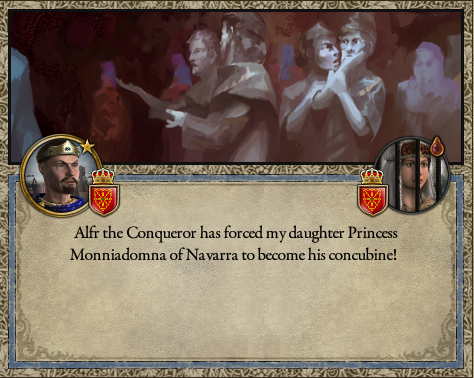
Liuvericho swore revenge and began plans for the conquest of Brittany, under the pretext of serving the Emperor of Francia as a marcher-lord but really to gain an ideal position from which to launch a campaign of conquest and revenge - the ultimate goal being the destruction of the Viking Kingdom of Dyfed.
At this time there were also many movements questioning god's favour, with heresies springing up on the battled edges of Christendom, principally in occupied Hispania and beleaguered Britannia. A large uprising in England installed a Lollard Heresiarch as the ruler of Leicester, who infact controlled much of the historic kingdom of Mercia. Similar uprisings also occurred in 'Middle Britain' in the lands of Lothian and Northumbria. In the east, exposure to the Catholic Church and the cetralisation of political power under the Ilmenian Rus did not inspire conversion, but adaption. Inspired by the structure and organisation of the Roman Church, the Slavic rulers of the Rus declared the foundation of an organised pagan Church, denounced by the Pope as 'the Church of Satan' but successful in uniting the Slavs under its guidance. The question of Lollard heresy and Catholic failures would become more and more important to the Navarrese Visigoths as they came into ever increasing contact with the English Lollards.
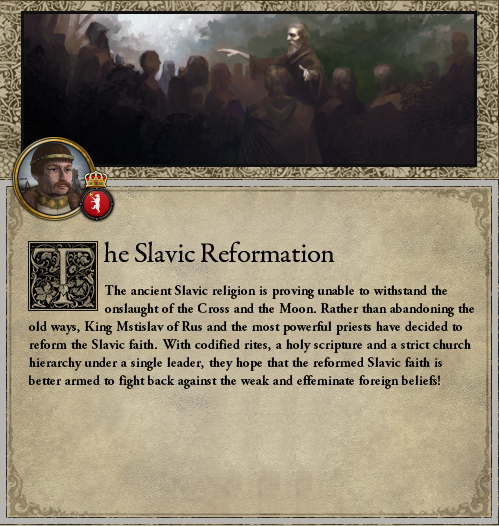
Liuvericho would successfully subjugate the Bretons, who were divided after a coup and simultaneously defending against would-be Viking conquerors.
Liuvericho didn't have long to celebrate his victory, however, or to continue his campaign into the British Isles, as he would fall dead just two years later. Although his reign was not short, his youth and the relative quiet of his reign - mostly devoted to acquiring the funds for campaigning and preparing for a campaign across the sea to Britanny, have left the reign of Liuvericho with a feeling of brevity. He laid the groundwork, however, for the successes in the reign of Agila, and his sizeable wealth would be used to great effect in the close-run Navarrese War of Independence.
As soon as Agila's regency ended and he could act as an adult, he brought war to the Britons of Kernow, who were now ruled by Irish conqueror-kings from Dublin, and had only one ally to call upon, they were soon defeated. That ally was the Saxon King of Wessex, who Agila would remember.
Navarrese War of Independence
Having freely relinquished the largely honorific title of King of Castile, the Navarrese kings were clearly now taken to be easily swayed by threats of force and the Emperor of the Franks foolishly demanded that they relinquish all kingship and accept the Frankish Emperor as King of Navarra. Finding himself at war with his cousin, the Emperor of Francia, King Agila was in a difficult situation only slightly mitigated by his ability to hire large quantities of mercenaries and the presence of Viking invaders in Provence.
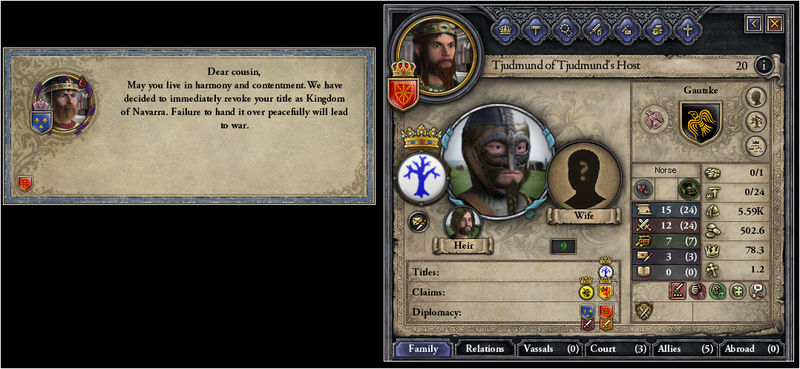
He secured a white peace, as the Emperor agreed to call off the revocation temporarily so that he may focus on the Viking incursions. No longer trusting his Frankish overlords, King Agila went on the offensive, declaring his intention to establish Navarra as a Kingdom independent of Francia. Despite the distraction in the south, the Franks recovered quickly and outnumbered the Navarrese significantly. Having at least 15,000 men in their armies, whereas the Navarrese could only muster less than 9,000 at great expense. The Navarrese managed to even the odds by taking advantage of the sheer size of the Frankish empire. The Navarrese consolidated their forces and fought a number of small battles in Aquitaine, hunting down smaller armies as they headed towards the Emperor's mustering grounds. By taking out bands of a few thousand at a time, Agila needed only to wait for the Frankish main force to strike at his capital lands and pursue them. Catching them in Blaye, on the mouth of the Gironde, King Agila won the decisive battle of the campaign. Occupying the French crown lands and paying for the upkeep of his armies largely through the ransom of captured Dukes and Nobles (including the Emperor himself, who was foolishly ransomed by the King, rather than forcing the captive king to agree a favourable peace), the campaign was eventually won.
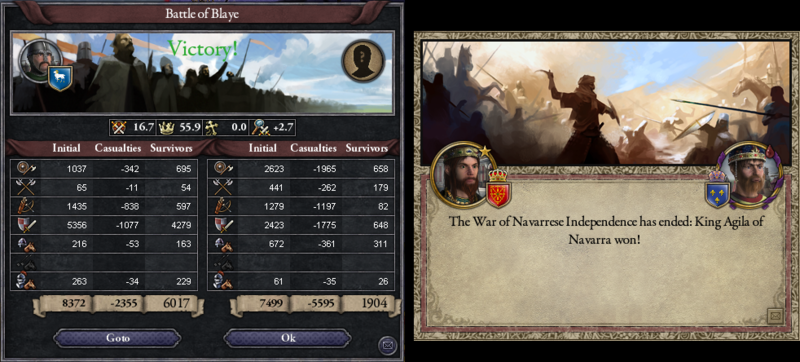
The fact that God had allowed the foremost secular ruler in Christendom to be defeated by armies that had failed to defeat the Muslims did not go unnoticed. Clearly something was wrong in the spiritual life of Catholicism, and many were tempted to join heresies. Agila even considered establishing a new, more holy, Papacy in the British Isles, but failed to find a Bishop willing to take the position.
Vikings and Visigoths
The Free Navarrese took to the sea and continued the campaigns started by Liuvericho. Agila opened the campaign with a great ceremony on the Breton coast, in which he sat upon a throne as the tides lapped around at ankle-level and the local Bishops assembled to decorate him as 'His Sacred Majesty, Agila, Lord of the Kingdom of the Sea, Sovereign of Navarra, Ruler of Lands and of the Sea, Duke of Britanny and of Cornwall, King of the Britons.'
His pretensions established, he launched a campaign in Britannia, conquering Glamorgan and then Wessex.
Poised and ready for his conquest of his father's arch-enemy, Alfr the Conqueror, Agila launched the completion of his Britannic campaigns against the Vikings of Dyfed, who had already lost Powys to the Welsh but were not yet fully defeated. Alfr, now an old man, had his kingdom seized, his armies destroyed and his lands all lost. Destitute, he returned to the sea, leaving Britain for ever and, it is assumed, dying soon after. Agila kept the new Welsh territories for himself and installed Visigothic nobles and clergymen in positions of power across the newly conquered lands.
Agila now found himself King of Navarra,
'the Kingdom of the Sea', a Kingdom stretching from the remaining Visigothic enclaves in the south, to Dublin on the Irish Sea to the north, and including Brittany, Cornwall, Devon and much of South Wales between them. A happy position for a crown once threatened with extinction only a decade before.




